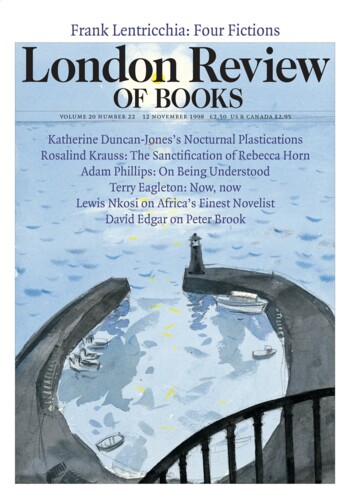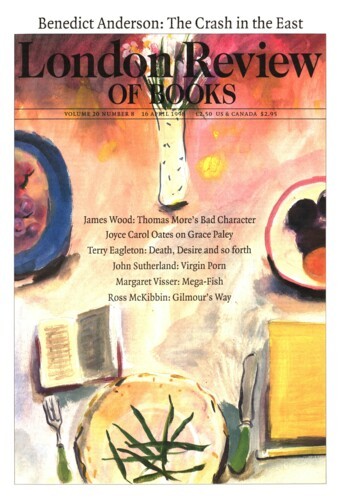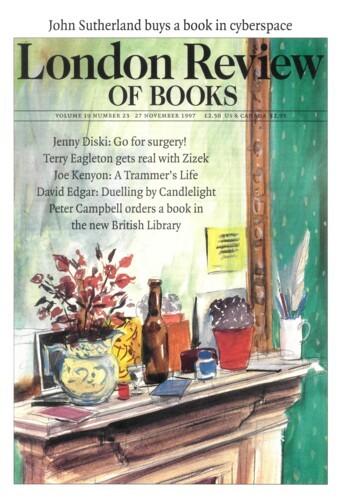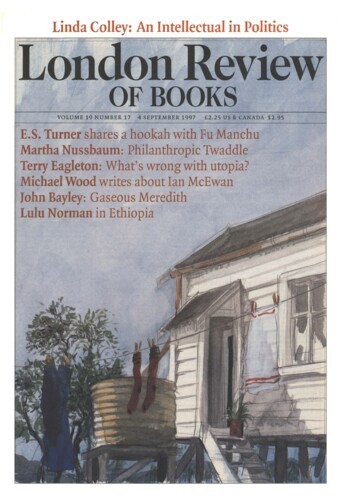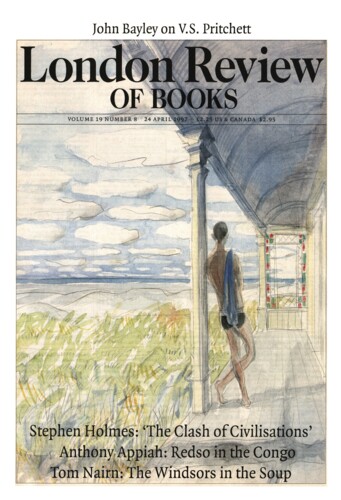Newsreel History: Modern Times, Modern Places by Peter Conrad
Terry Eagleton, 12 November 1998
Of all historical periods, modernity is the only one to designate itself, vacuously, in terms of its up-to-dateness. Does this imply that the Renaissance lagged behind the times, or that classical antiquity (from where, ironically, we derive the word ‘modern’) could never quite catch up with itself? The fact is, of course, that in their own eyes the Stuarts were quite as modern as the Spice Girls, but labels like ‘Modernism’ and ‘modernity’ tend to obscure this fact. Every epoch suffers from the disability of being contemporaneous with itself, and of having no idea where it might lead. In some ways, we know a good deal more about the doctrine of divine right than the Stuarts did, not least that it failed to survive them for very long.‘
